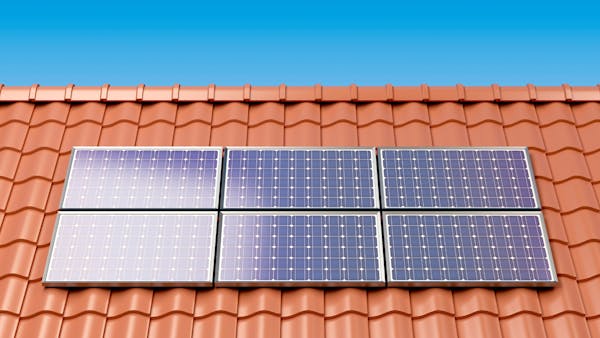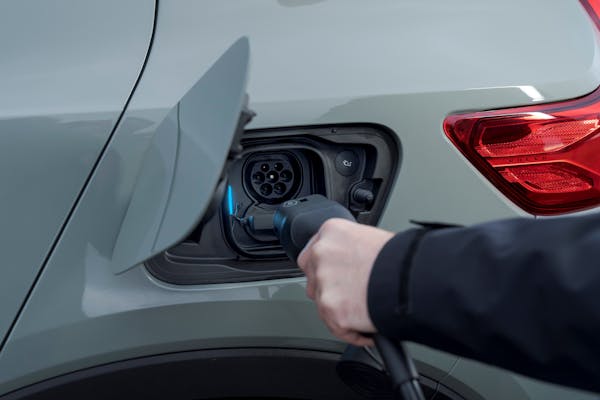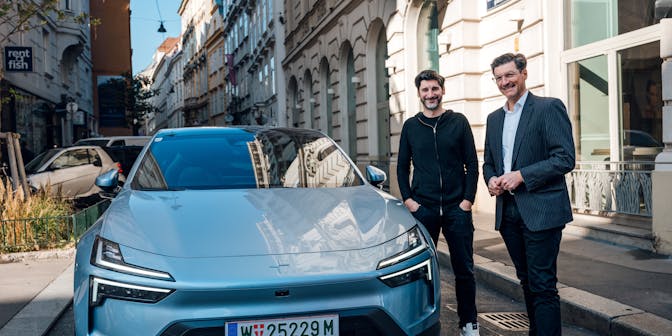Can electric car batteries be charged with solar panels?
In a word, yes, you can charge your electric car battery with solar panels, and it’s a great way to reduce your carbon footprint. Here we’ll tell you everything you need to know about solar panel charging, as well as what equipment you’ll need at home to do it.
How Does Solar Charging For Electric Vehicles Work?
Charging electric cars with solar power is quite simple. It works by the panels soaking up sunlight and turning it into electricity. This electricity, which is called direct current (DC), then goes through a device called an inverter, which changes it into a type of electricity that can charge the car's battery, called alternating current (AC).

To make sure everything goes smoothly, another device called a charge controller is used. This keeps an eye on the battery and adjusts how fast it charges to make sure it doesn't get too full or too empty, which in turn helps the battery last longer.
The electricity made from the sun during the day can either be stored in the car's battery for later or used right away to charge the car, which is obviously a great sustainable advantage of using solar panels to charge your electric car’s battery.
What Equipment Do I Need To Charge My Electric Car Battery?
If your house already has solar panels fitted, then all you’ll need is a domestic solar photovoltaic system (solar PV) and the solar charger cable for electric car’s battery.
If you already have an EV charger fitted, you can connect this to your solar panel system with a PV inverter unit, which is what converts the solar energy into electricity via the solar panels. You’ll hopefully have a solar panel system that already has this PV inverter unit function, however it’s best to check.
Naturally, the other thing to consider is the time of day you’ll be wanting to charge your EV’s battery. Obviously plugging your EV in during the day while the sun shines means that all those solar rays get converted into electricity go straight into the battery. If your set-up has battery storage then your solar panels can be top-up your battery storage and this energy can be passed into your EV once its plugged in, even when it's dark.
However, it is worth noting that battery storage is highly likely to have a smaller capacity than the battery in your vehicle. For example, the Tesla Powerwall 2 has a useable capacity of 13.5 kWh, compared to a Tesla Model Y LR having a capacity of 75 kWh. So the limiting factor in this scenario is that a maximum of 13.5 kWh of energy being passed from storage to the EV battery.
To make the best use of charging your EV via solar panels, we recommend that your EV needs to be plugged in during daylight periods where practical.
If you want to get really fancy, you could take it one step further and get an emergency power supply (EPS) installed too, which, as the name suggests, will protect you in the event of a power cut, so you can keep your home electricals and EV charging point running.
If you don’t already have solar panels fitted, but you want to and your biggest motive for getting them is to charge your electric car, then our best advice is to speak to a professional about the right type and size of solar panels you need for your specific needs.
Typically, a solar panel system with between 8-12 panels will generate between 1 - 4 kWp (kilowatts of power), this will be enough to charge an electric vehicle, however charge times will depend on the battery size of the vehicle and the current state of charge.
So, how long will it take to charge an electric car using solar panels?
Here are some example charge times of charging popular electric vehicle models with solar panels. The figures show charging the vehicle from empty to 100% capacity using the average estimated power output of 4kW. If the energy generated is stored in a battery storage system and you are not charging directly from solar panels, the charge time would depend on the specifications and capabilities of the battery storage system and the electric vehicle charger you own (a typical domestic battery storage system might have a power output ranging from around 3 kW to 10 kW).
Electric Vehicle |
Battery Size (kWh) |
Time to Charge at 4 kW |
|---|---|---|
Volkswagen e-up |
32.3 |
8 hours, 4 minutes |
BYD Atto 3 |
60.5 |
15 hours, 8 minutes |
Tesla Model Y |
75 |
18 hours, 45 minutes |
BMW i5 |
81.2 |
20 hours, 18 minutes |
What Are The Benefits Of Using Solar Energy To Charge Electric Vehicles?
Environmental Sustainability
Cost Savings
Energy Independence
Resilience during Outages

Suppose you already have your solar panels installed. In that case, it makes a lot of sense to utilise these to charge your electric car battery, as fundamentally, the biggest benefit of doing so is that it’s extremely friendly to the environment. In addition to this, there are huge savings on energy costs, as once you’ve covered the initial setup costs, you’ll spend a lot less charging your car every time.
Of course, if you don’t have your solar panels installed already, then there is the obvious drawback of the initial setup costs, which can be in the thousands, however, if eco-consciousness is high up on your list of priorities, then solar panel car charging is an excellent practice to adopt.
Last updated April 2024
Published April 2024
Our Expert Guides
Understanding Vehicle Excise Duty (VED) or "Road Tax" for EVs

How to save money on a new car with Salary Sacrifice
How is salary sacrifice calculated?
